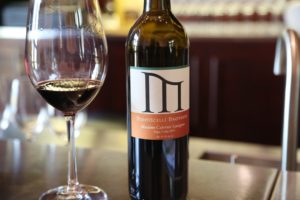
 Monticelli Brothers Winery is owned and operated by two brothers, Massimo and Mario Monticelli – both 4th generation winemakers. Their other brother Marcus is not involved; instead, he is a chemical engineer. In Italy, towns have a “local winemaker” which was a role their grandfather Lito filled in Pistoia, a now sizable town in Tuscany, about 30 minutes north of Florence.
Monticelli Brothers Winery is owned and operated by two brothers, Massimo and Mario Monticelli – both 4th generation winemakers. Their other brother Marcus is not involved; instead, he is a chemical engineer. In Italy, towns have a “local winemaker” which was a role their grandfather Lito filled in Pistoia, a now sizable town in Tuscany, about 30 minutes north of Florence.
Pistoia (population 90,000) is home of the Basilica of Santa Maria dell’Umilta, with construction started in 1495 and ultimately finished nearly 100 years later in 1585. The dome was designed by architect Bartolomeo Ammannati and was built to resemble the dome of the Florence Cathedral. Perhaps more locally famous than the church itself, is the fresco inside, dating from 1350 of the Madonna of Humility which in 1490 according to local lore, shed sweat resulting in a cult like followership.
Pistoia is also well known for its surrounding plant nurseries, flower markets and Pistoia Blues, an international music festival held annually since 1980. In his youth, former basketball player, Kobe Bryant and his family lived in Pistoia for a short while. The Pistoia Basket 2000 basketball team is also located here; former Golden State Warriors power forward, Eric Paschall played several years for this team after his short time in the NBA. We have visited Pistoia before; see our photographs at the end of this review.
In 1948, only three years following the end of WWII Mario and Massimo’s grandfather Lito (died 2000) and his family including Massimo and Mario’s father Marcello Monticelli immigrated to the USA, settling in Madera (Madera County). Bringing cuttings in a suitcase, their grandfather literally brought his business with him, which were the raw material needed to start a vineyard in California. For many years he grew grapes in the Central Valley (primarily Thompson Seedless) for making raisins but kept a number of rows planted to Italian varieties for home wine. Based on both heritage and immediate family growing grapes or producing wine, Massimo and Mario have spent their entire lives in and around the wine industry.
Their father Marcello came to California without speaking any English. Involved with agriculture from an early age, while a junior at Madera High School he won a top project award in a four county Future Farmer’s of America Competition for overseeing 10 acres of cotton and additional acres of Thompson Seedless grapes and Muscat. This was one of just a number of awards he took for various agricultural activities while in high school including pruning.
Encouraged by his father to study agriculture, he attended Fresno State University and graduated in 1969 with a degree in Enology. In 1989 and again in 2021, Fresno State awarded him a Distinguished Alumnus from the Jordan College of Agricultural Sciences and Technology.
In 1970 he began what would become a 50 year career at GALLO. He was winemaker and later an executive for GALLO spending almost his entire winemaking career there from 1970 through 2020. He helped make numerous well-known GALLO owned brands including Ripple, Boone’s, Carlo Rossi and Hearty Burgundy. In addition he was instrumental in developing the Gallo Estate and Gallo single vineyard wines and was an integral part of Gallo of Sonoma. He worked with Julio Gallo and later became a mentor to many in the industry including Julio’s granddaughter Gina.
One should not confuse this winery with Monticello Winery (named after Thomas Jefferson’s estate and no relation to the family); Monticelli Brothers actually made the first few vintages of their wine at Monticello Winery, perhaps contributing to some confusion at that time.
All their wines are named after family members; as of our latest update to this review they produce four different wines. We met with Massimo for our tasting. He is spirited, enthusiastic and extremely passionate about the hands-on part of wine making. Raised in Modesto and once on the fast track to be a doctor, he graduated from UC Irvine with a degree in Chemistry and Biology. But his family roots called out and he changed career paths eventually earning his masters in Enology and Viticulture from UC Davis. His first wine job in Napa Valley was as an Enologist for Silver Oak where he spent four years and got to know Silver Oak’s founding winemaker Justin Meyer and also winemaker Daniel Baron.
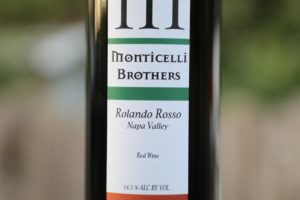
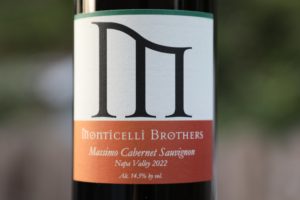 Along with making Monticelli Brothers, he also consults for a number of premium and fairly small producers. He often works with premiere Napa Valley vineyard sources; he uses a soccer analogy in regard to his winemaking, “the goalie is out of the cage and it’s his job to tap it in.” He doesn’t take credit for the wines – rather deflects praise on the vineyard sources.
Along with making Monticelli Brothers, he also consults for a number of premium and fairly small producers. He often works with premiere Napa Valley vineyard sources; he uses a soccer analogy in regard to his winemaking, “the goalie is out of the cage and it’s his job to tap it in.” He doesn’t take credit for the wines – rather deflects praise on the vineyard sources.
And Mario also studied at UC Davis, graduating with a degree in viticulture and enology and also a degree in the Art of Italian Language. He has made wine at a number of premium wineries including at Antinori in Chianti Italy, in Sonoma County at B. Wise Vineyards and in Napa Valley at Melka Wines, Quixote and at Trinchero Family. Presently he operates his own wine consulting business and assists his wife Anna, also a winemaker with a number of brands they both own including M.A. Monticelli Wines and Ilaria.
Select Wines
One variety that Massimo loves working with is Cabernet Sauvignon; he told us that he would rather drink a mediocre Cabernet Sauvignon than any other variety. This is refreshing to hear as this is the singular variety synonymous with contemporary Napa Valley.
The 2022 Monticelli Brothers Massimo Cabernet Sauvignon is deep ruby/purple and opaque, teeth staining darkness. This wine is bursting to get out of the bottle with wide open aromatics as soon as we popped the cork. Its bouquet is energetic, youthful and brimming with dark fruits including blackberry, boysenberry, Pakistani mulberry, blueberry, dark plum and any other other dark berries you can possibly think of. There are also notes of cedar box, coffee grinds and assorted darker baking spices. The compelling and always expected richness of the aromatics, regardless of vintage for the Monticelli wines is clearly front and center on this bottling. This is a mouthful of intense dark fruited flavors accompanied by a savory veracity that demands protein. This is one of the more structured and rich showings of Cabernet Sauvignon from the 2022 vintage in Napa Valley that we have tried. That year generally produced wines that were more approachable and less layered than the 2021 vintage. The finish lingers with grippy, chewy and drying tannins still very much edgy in their youth, dried herbs and plenty of lasting dust and chalk which far outpaces the fruit.
The 2021 Monticelli Brothers Massimo Cabernet Sauvignon is deep ruby/purple and opaque; color is never a problem on any of the Monticelli Brothers wines. The bouquet is a union of floral, berries and savory characteristics. These scents are of dark, ripe and youthful black fruit including blackberry, boysenberry jam, mulberry, cherry and Satsuma plum. There are plenty of other layers here including lilacs, violets, lavender, dried sage, old cedar box, pipe tobacco and as the wine continues to open, notes of espresso, mocha and dark chocolate. Fresh, fruity and revealing the power of the vintage it is clear this wine is built to age. On the palate there are flavors of dark blackberry, boysenberry, black cherry and plum at the peak of ripeness. Intense, dense and deeply layered, the finish is built on firmly gripping, gravelly and grainy tannins which persist with a long-lasting drying, dusty and chalky character. If you want a wine built with plenty of chutzpah, you will want to become ‘friends’ with this particular bottling. You will want to pair this with a steak with rich marbling, an intense beefy flavor, and the ability to handle bold seasonings – perhaps a Tomahawk will do the trick.
The 2015 Monticelli Brothers Massimo Cabernet Sauvignon is a blend of vineyards from St. Helena and Coombsville. This wine has plenty going on in the bouquet with aromas of plum and dark cherry and as the wine breathes, sweet dessert spices including vanilla, a hint of cedar plank and a blood orange nuance. Highly aromatic; it keeps evolving nicely over time. The palate offers an energetic acidity, showing a mouthwatering brightness accompanied by firm but not overly gripping tannins.
An extremely unique offering for a Napa Valley based producer is their Sagrantino; this Italian variety is indigenous to Umbria. 2018 was their first ever vintage of this wine.
Sangiovese
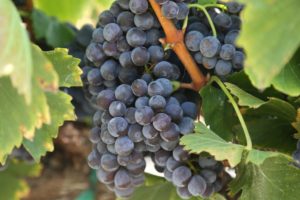 For many years the brothers sourced their Sangiovese from the Russian River, on a property owned by GALLO. GALLO planted 10 different clones of Sangiovese including one of their grandfather’s clones brought to the U.S. when he immigrated. At one point the rows of all the other clones were removed leaving just four rows of their grandfather’s Sangiovese. But eventually these rows were also removed and as of latest update to this review, Monticelli Brothers no longer produces wines from this variety. The 2003 Mario Sangiovese is made in an Italian style. True to the Italian way of making this wine it is 100% varietal. It has bright fruit, lively acidity and very much red-fruit driven aromas. The palate features flavors of red cherry accompanied by an assortment of spices; the finish is very smooth. Easy drinking and ready to be enjoyed with your choice of pizza or pasta.
For many years the brothers sourced their Sangiovese from the Russian River, on a property owned by GALLO. GALLO planted 10 different clones of Sangiovese including one of their grandfather’s clones brought to the U.S. when he immigrated. At one point the rows of all the other clones were removed leaving just four rows of their grandfather’s Sangiovese. But eventually these rows were also removed and as of latest update to this review, Monticelli Brothers no longer produces wines from this variety. The 2003 Mario Sangiovese is made in an Italian style. True to the Italian way of making this wine it is 100% varietal. It has bright fruit, lively acidity and very much red-fruit driven aromas. The palate features flavors of red cherry accompanied by an assortment of spices; the finish is very smooth. Easy drinking and ready to be enjoyed with your choice of pizza or pasta.
Rolando Rosso
Out of more than 1,200 Napa commercial wine producers we have visited and tasted with on this project we have run into only a non-vintage dry red wine a handful of times; it is very rare to find this type of wine in Napa Valley. This is the wine that both Massimo and Mario would drink while “making” wine in the cellar. They determined (correctly) that since it was something they enjoyed (even while working), why not bottle it commercially. Little did they know how popular of a wine it would become as now it is their best selling bottle.
After tasting it, we can see why. By bottling a modified Solera style non-vintage wine, aged characteristics are combined from the older wine with the liveliness from the younger wine. They strive for consistency with this wine always using the same oak program from year to year. In addition, 50% of the wine left in barrel always carries over to the next year’s vintage. Rolando Rosso is named after their great uncle. It is a Cabernet Sauvignon based blend with smaller amounts of Syrah and Merlot.
The Monticelli Brothers Rolando Rosso Napa Valley Red Wine (tasted in early 2025) is deep purple and opaque with an amaranthine rim; open knitted and immediately floral, the bouquet offers scents of lilacs and violets, dark plum, a sanguine character that we sometimes notice in ‘meaty’ Syrah, toast, coffee grinds, espresso, toasted cedar, fresh tobacco and plenty of darker fruits including black cherry, boysenberry, blackberry and Persian mulberry. Wine writers sometimes describe acidity as lifted but we never see this adjective used to describe aromatics. The floral attributes here provide a lift and buoyancy to the bouquet. On the palate there are both red and darker fruits including cherry, blackberry, boysenberry, dark raspberry and red plums. From start to finish, this wine features an invigorating acidity, a dark mineral undertone and moderately gripping, fully-coating tannins which linger with a dry and dusty character beyond the fruit on the finish. Tasting this made us want to pair it with a tomato and beef based lasagna, a summer evening where the warmth of the day still lingers, and a gathering of good friends. This is one of the better quality to price point red wines coming from Napa Valley.
Dessert
For one vintage only (2003), they produced a rich dessert wine called Lito Vin Santo, named in homage to their mother’s favorite wine. The grapes for this wine are harvested late and are laid out on mats to dehydrate. They were then pressed off creating resulting juice that is very rich and concentrated in flavor. Subsequent fermentation and aging takes place in sealed oak barrels. After 3-5 years of aging the clear wine is removed from the cloudy lees. The “mother yeast” is always left in the remaining barrels which are then filled with the current years vintage.
Historically this same yeast has been used in their family for this type of wine since the 1950s. Some unusual varieties are used to make this wine including primarily Muscat Canelli and Malvasia Bianca, with smaller amounts of Sangiovese, Aleatico and dollops of Brachetto, Sémillon and Trousseau. The 2003 Lito Vin Santo is a pleasant wine featuring about 2% residual sugar and a relatively low alcohol content. There is a honey profile on the nose which also shows as flavor on the palate. We also noted apricot, crème Brule, a toasted nuttiness and a slight baking spice to the finish.
—
Their focus of distribution is within restaurants; one can find them locally on the wine list at Don Giovanni’s in Napa, where sometimes one can find Massimo hanging out at the bar, and the Rutherford Grill. The have select distribution in New York and Florida. The wines are priced extremely well for the quality. They also sell direct to consumer through their website and have a wine club, appropriately called, ‘the brotherhood’. For more information and to join their mailing list, visit: www.monticellibros.com
Pistoia, Italy

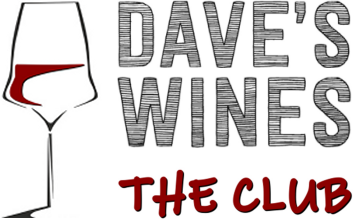




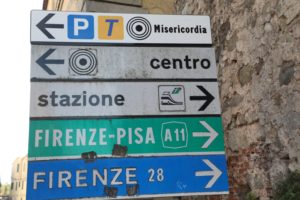
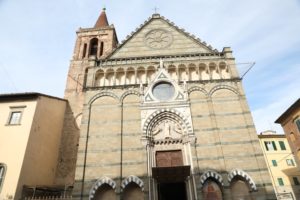
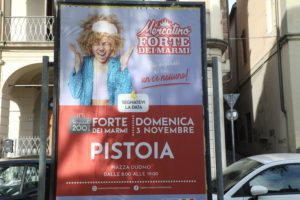
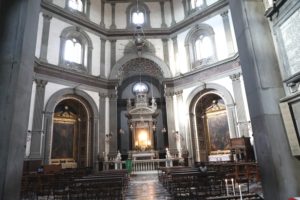
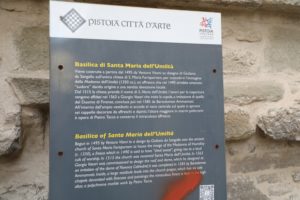
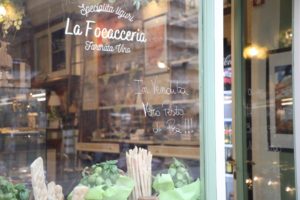
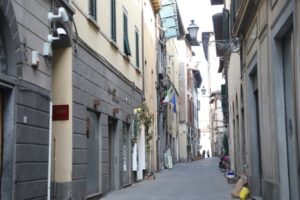
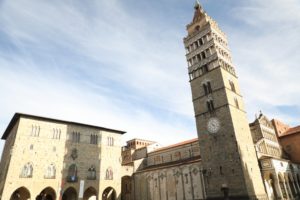


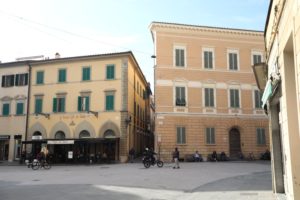
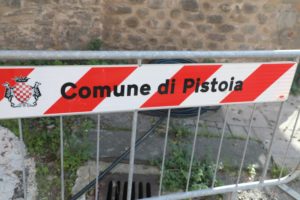
Where is the winery located? Really want to try your vin Santo after trying it in Italy for the first time 2 years ago.
Monticelli Brothers custom crushes at a winery on the south Silverado Trail.
I’ve been trying to catch up with Marcello for years. If he can give me a call at 916-247-9781 or an e-mail to steve_sanguinetti@yahoo.com I’d appreciate it.
Otherwise congratualations on Fresno State top dog?? award.
Steve Sanguinetti
Hi Steve. I saw Mario and Anna today; I’ll pass on your note to Anna so that she can pass it on to Marcello.